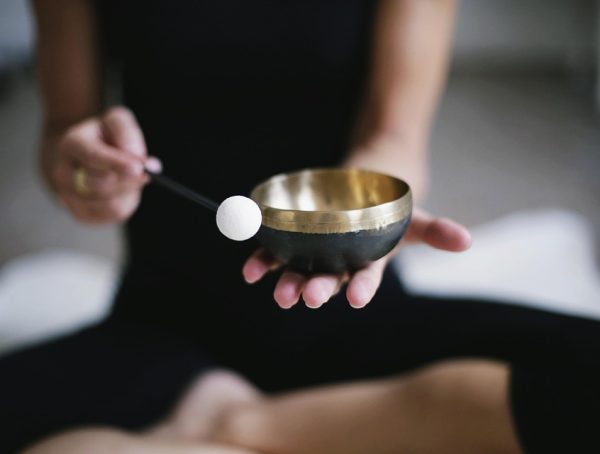Why Mindfulness Meditation is Essential for Mental Clarity
In today’s fast-paced world filled with distractions, achieving mental clarity can feel like an uphill battle. We are constantly bombarded with information, obligations, and responsibilities, leaving little room for reflective thought. This is where mindfulness meditation enters the scene: a powerful practice that not only calms the mind as a stress-reliever but also enhances focus and mental clarity.
Understanding Mindfulness Meditation
Mindfulness meditation is the practice of paying attention to the present moment without judgment. By focusing on your breath, bodily sensations, or the environment around you, you train your mind to detach from its habitual patterns of thinking. It’s about recognizing thoughts as they come, observing them, and then allowing them to pass rather than getting caught up in them.
The Benefits of Mindfulness for Mental Clarity
-
Reduces Mental Clutter: Regular mindfulness practice helps you declutter the mind. This is particularly vital today when we are bombarded with stimuli. By taking time to meditate, you provide your brain the opportunity to relax and reset, leading to fewer racing thoughts and more awareness of the present.
-
Enhances Focus: Research has shown that practicing mindfulness can improve attention spans significantly. When you maintain a focus on one task—whether it’s your breath during meditation or a project during work—you’re exercising your brain’s ability to channel its energy more effectively.
-
Increases Emotional Awareness: Mindfulness helps you become more aware of your emotions, which leads to better emotional regulation. When you recognize an emotion as it arises, rather than being swept away by it, you have a clearer decision-making capability. This allows situations to be approached from a place of calm instead of chaos.
-
Fosters Resilience: Engaging in mindfulness helps cultivate resilience—your ability to bounce back from stress or adversity. Mindfulness encourages a growth mindset, where obstacles are viewed as challenges rather than threats. When you develop resilience, mental clarity follows, as you’re less likely to be overwhelmed by negative thoughts.
- Supports Better Sleep: Quality sleep is essential for mental clarity and cognitive functioning. Mindfulness can promote relaxation that aids in reducing insomnia-related symptoms. A well-rested mind is naturally clearer, sharper, and more efficient.
Action Steps: How to Start Mindfulness Meditation
If you’re ready to explore the benefits of mindfulness meditation for mental clarity, here are some actionable steps you can take:
-
Set Aside Time: Start small. Dedicate just five to ten minutes each day for mindfulness practice. As you become more comfortable, gradually increase the duration.
-
Create a Quiet Space: Find a calm and comfortable spot where you won’t be disturbed. A peaceful environment can greatly enhance your meditation experience.
-
Focus on Your Breath: Start by closing your eyes and taking deep, slow breaths. Pay attention to the rise and fall of your chest or the feeling of air entering and exiting your nostrils. If your mind wanders (and it will), gently redirect your focus back to your breath.
-
Try Guided Meditations: There are many apps and online platforms that offer free guided meditation resources. These can provide structure and help you get started if you’re unsure what to do during meditation.
-
Practice Mindfulness Throughout Your Day: Apply mindfulness beyond formal meditation. While eating, for instance, savor each bite without distractions. During daily tasks, focus entirely on the present moment rather than multitasking.
-
Keep a Journal: After each meditation session, take a few minutes to jot down your thoughts. This can help track your progress, observe any changes in mental clarity, and reinforce your practice.
-
Join a Community: Connecting with other practitioners can offer support and motivation. Look for local mindfulness or meditation groups, or consider joining online forums.
- Be Patient: Mindfulness is a skill that takes time to develop. Approach your practice with patience and kindness towards yourself. Progress may be slow, but commitment to the practice will yield results.
Conclusion
Mindfulness meditation is not just a trend; it’s an essential practice for anyone looking to enhance mental clarity in a complicated world. By integrating mindfulness into daily life, you create a space for calm amidst chaos, leading to improved focus, emotional resilience, and overall mental health. The journey of mindfulness requires a commitment to practice, but the rewards are profound and beneficial for both the mind and spirit.
Remember, "Your life is your story, and the adventure ahead of you is the journey to fulfill your own purpose and potential."
For more inspiring content about mindfulness and personal growth, follow Kevin on Instagram @KSteineman. Embrace the journey!
You might also like
More from Meditation
The Role of Mantras in Transcendental Meditation: A Deep Dive
The Role of Mantras in Transcendental Meditation: A Deep Dive Transcendental Meditation (TM) has garnered a significant following across the globe, …
The Science Behind Meditation: Improving Mental Health Naturally
The Science Behind Meditation: Improving Mental Health Naturally In today's fast-paced world, the pursuit of mental wellness has become paramount. Thousands …
Understanding the 7 Types of Meditation for Beginners
Understanding the 7 Types of Meditation for Beginners: A Path to Inner Peace Meditation has become a popular practice in recent …


































